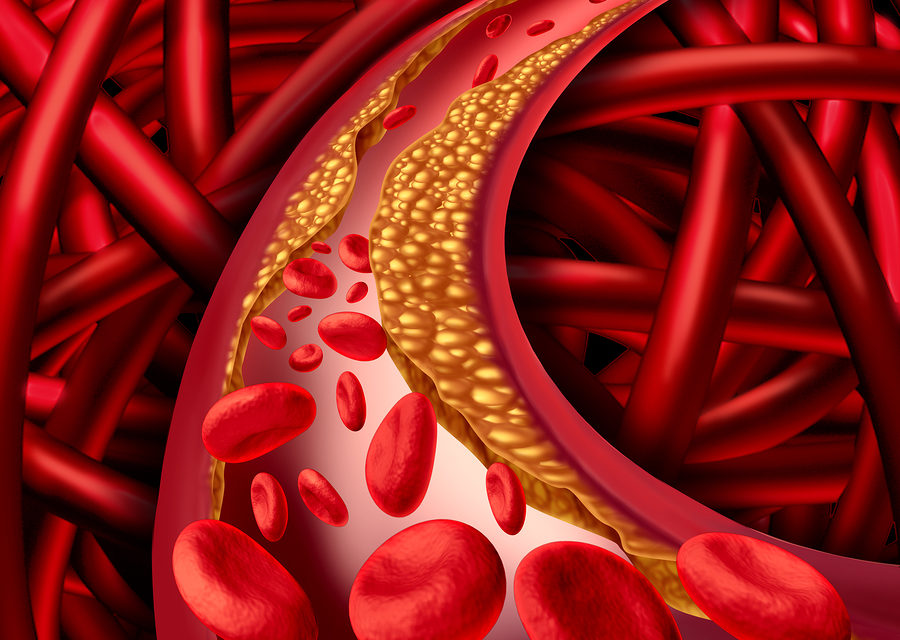Vitamin K may be useful in preventing arteriosclerosis. Arteriosclerosis is the stiffening or hardening of the artery walls. Atherosclerosis is the narrowing of the artery because of plaque build-up. Atherosclerosis is a specific type of arteriosclerosis. One of the issues in arteriosclerosis is calcium buildup in the arterial walls.
Matrix Gla-protein (MGP) inhibits calcification of the arteries, and requires vitamin K for that function. The anticoagulant drug, warfarin, inhibits MGP. Warfarin can therefore lead to arterial calcification. In an animal study, appearing in Blood (1 April 2007, Vol. 109, No. 7, pp. 2823-2831) found that supplementing rats with high dose vitamin K reversed arterial calcification caused by warfarin consumption. Arterial calcification was produced over a period of six weeks by giving warfarin to the rats. The rats were then divided into four groups and for the next six weeks they either continued being given warfarin, a low dose of vitamin K (5 mcg/g of food), a high dose of vitaimin K1 (100 mcg/g of food) or a high dose of vitamin K2 (100 mcg/g of food).
Arterial calcification continued in the rats receiving warfarin or a low dose of vitamin K. On the other hand, the rats that were fed high doses of either vitamin K1 or vitamin K2 experienced significant decreases (up to 50%) in arterial calcification. High doses of vitamin K also improved the suppleness of the arteries. Local vitamin K deficiency was found in areas where calcification existed. The study suggests that arterial calcification and decreased arterial distensibility may be reversed through supplementation with high doses of vitamin K.






